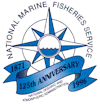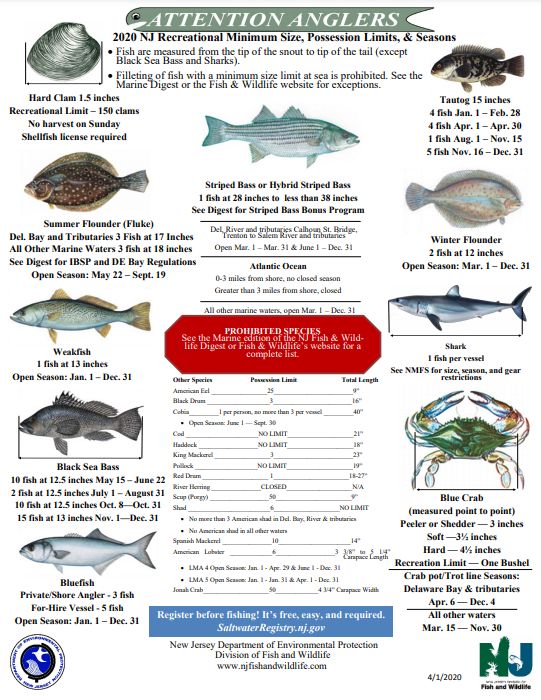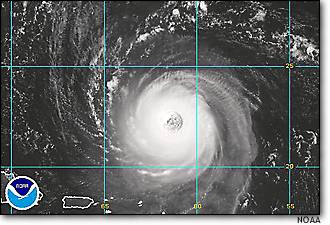Regulatory Sources
 | National Marine Fisheries Service ( NMFS ) NE Region 1 Blackburn Pl. Gloucester MA 01930-2298 possession limits: 508-281-9260 federal permit applications: 508-281-9370 local NMFS law enforcement: 609-390-8303 or 908-528-3315 Tuna Quota updates: 301-713-1279 |
  | NJ Department of Environmental Protection Division of Fish, Game & Wildlife CN 400 Trenton NJ 08625-0400 information: 609-292-2965 marine fisheries: 609-292-2083 shellfisheries: 609-984-5546 law enforcement: 609-292-9430 |
 | Atlantic States Marine Fisheries Council ( ASMFC ) Mid Atlantic Fisheries Management Council |
For additional Health Advisory information, contact:
NJ Department of Environmental Protection
- Division of Science & Research: 609-984-6070
- Division of Fish, Game, & Wildlife: 609-748-202
Here are all the New Jersey Marine Digests in pdf, back through 2000. The state's website is just so painful and slow to find anything on:
- New Jersey Marine Digest 2021
- New Jersey Marine Digest 2020
- New Jersey Marine Digest 2019
- New Jersey Marine Digest 2018
- New Jersey Marine Digest 2017
- New Jersey Marine Digest 2016
- New Jersey Marine Digest 2015
- New Jersey Marine Digest 2014
- New Jersey Marine Digest 2013
- New Jersey Marine Digest 2012
- New Jersey Marine Digest 2011
- New Jersey Marine Digest 2010
- New Jersey Marine Digest 2009
- New Jersey Marine Digest 2008
- New Jersey Marine Digest 2007
- New Jersey Marine Digest 2006
- New Jersey Marine Digest 2005
- New Jersey Marine Digest 2004
- New Jersey Marine Digest 2003
- New Jersey Marine Digest 2002
- New Jersey Marine Digest 2001
- New Jersey Marine Digest 2000


